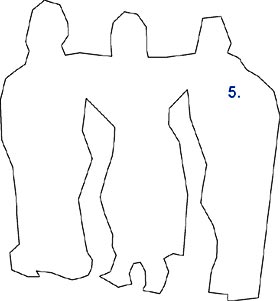 
|
Enzensberger: I think that for word people radio is of course much better than television, much better. I mean, Günter Eich with his radio plays. Or for a poet. Thereís nothing better than a poem on the radio. Itís much better than a reading, because in a reading the people just want to see what kind of tie heís got on. When it comes over the airwaves I hear this voice, and a lot is left to the listenerís imagination. Television kills everything immediately. People just look at how heís laughing, at his funny hairdo and thousands of things that only divert attention from the word.
Schrott: I think that invariably media change to a certain degree the outlines, the framework of what you provide. Just as literature, the use of the alphabet substantially changed the poetry that had existed up to that point and suddenly created new possibilities.
Even so I think that the thematisation of the medium as the content of the message was a self-reflective cycle which had a certain innovative effect and induced euphoria. There was hardly an installation which did not include a television somewhere and did not thematise "white noise". But that soon becomes boring and, in particular, it exhausts itself, because a medium is in effect only a means of transporting from a transmitter to a receiver.
The medium in itself does of course change things. The Internet changes telephone, radio and television. These are only relatively marginal changes as compared to what is being propagated the whole time, namely that the media are changing our ways of thinking to a major extent. Firstly, this is a wrong conclusion and, secondly, the old forms keep coming back. When the telephone and mobile appeared on the scene, it was said that nobody would write letters any more. And now, thanks to e-mail and the Internet, people are writing again, and writing, and writing, and writing.
Enzensberger: Writing differently perhaps, but writing. No, these media will not disappear, I donít believe it. When a new medium emerges, initially it doesnít know what itís there for. The first thing it has to do is fill itself up with practical experience. Now weíve got this smart house which nobody wants. When you go in, the computer scans your cerebral convolutions to establish what your mood is, and then it automatically plays a happy tune or a sad one. Of course thatís just what a person doesnít want. And again we donít know what itís good for.
Hans Magnus Enzensberger
lyricist, essayist, dramatist, author of radio plays, editor, Büchner Prize laureate
Raoul Schrott
lyricist, novelist, author of radio plays, literary translator
Martin Zeyn (BR)
host
BR/intermedium 2
|















